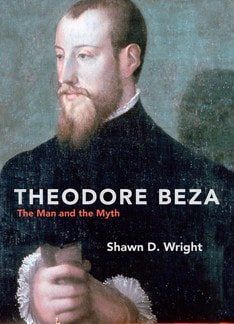This title opens with, ‘Theodore Beza? Who’s he? Why should I care about him?’ The author (associate professor of church history at the Southern Baptist Theological Seminary) answers these questions with warmth and clarity.
Three reasons are given for writing. The first is that Theodore Beza (1519-1605) is a great example of what it means to love and trust Jesus Christ in the face of difficulties. The second is that Beza has often been maligned and misrepresented by historians and theologians. The third is that we live in a time of heightened interest in Calvinistic theology and history, and Beza stands as a key figure in its development.
The book includes a helpful and interesting biographical account of Beza. It charts his upbringing, the influences that shaped him, his association with John Calvin, his work in Geneva, his writings, and his love and concern for the cause of the gospel in his native France.
A chapter summarising Beza’s theological vision is also included. Here the author answers those who claim Beza developed Calvinism in a way that Calvin himself would not have recognised. He shows that, for Beza (like Calvin), the central thing in Christianity is the knowledge of God. Beza was a pastoral theologian who knew that we are involved in a spiritual battle, but was convinced that God is sovereign. The chapter ends with a selection of Beza’s writings that shows how the sovereignty of God comforts and strengthens God’s people in the battle.
The rest of the book examines five of Beza’s published works: his summary of the Christian faith; his work on predestination; his work on the plague in Europe and our response to troubles; his work on assurance; and his household prayers.
As these five works are examined, we are shown that, though Beza was a theologian of great intellect, he was a man of great devotion to God and pastoral sensitivity in dealing with God’s people.
Overall, an excellent introduction to the life and writings of Theodore Beza.
Mark Rowcroft
Darlington






